Who We Think Has the Power to Change the World? (transcript)
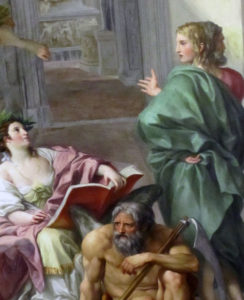
NOTE: An unfinished draft of this post was accidentally published for a little while on March 2nd-3rd, but it wasn’t actually ready yet then, but here’s the finished version:
Hello, wonderful readers! What I have to share today is not a polished essay, but the transcript, slightly cleaned up but mostly as given, of a talk I gave recently at a science fiction convention, Capricon 2021, whose theme this year was “Making the Future We Want”—a great topic for reflection. In the talk I look at our ideas about who has power to shape the future, stringing together short precis of several different articles and such that I’ve been working on lately. Each little precis is less polished and evidence-packed than the long versions (links & citations provided where I can), but I think the combination, though compressed, has a useful flow and brings together some points that I hope will help people reflect on how our narratives about history shape the power (and powerlessness) we believe we have. I hope you enjoy!
As another treat, here is a wonderful video made by my friends at the Paideia Institute which recently invited me to give a talk on the process of recovering a classical text in the Renaissance, with live examples of me showing Renaissance era printed books and manuscripts thanks to the miracle of webcam. I’m hopeful I’ll be able to use the same webcam system to do more rare books demos in future!
Talk transcript:
I was struck by how Capricon 2021 (Capricon is a fabulous F&SF con! you should all go to it!) had a theme this year—“Making the future we want”—which overlaps some of the history work that I’ve been doing, so I thought people might enjoy a bit of a serious talk on a very interesting question. Some of you may have read my blog post “On Progress and Historical Change” which gives a history of the concept of progress, and this talk will overlap that a bit. But what I want to talk about here is the question of how we imagine how society and history change, who we imagine has control over that, how much control we imagine we have, and how that has changed over time. And our feelings about how much power we have, or how much power we feel other people have over change in real history, is often very different from what the historical record suggests. So I’ll be talking about some of my work as a historian and what it shows about how culture changes, vs the concepts that we usually tend to have about that.
I’m what’s called an intellectual historian, which means I focus on what we think is true. This is related to history of ideas, so I study concepts like the concept of progress, the concept of atoms, the concept of rights or equality, the concept of atheism, not just what atheist ideas existed but also what people at different points in history who didn’t consider themselves atheists thought an atheist should or would be like in terms of ethics, the personality the imaginary atheist whom Thomas Aquinas is arguing with in some of his writings, for example—these are examples of things an intellectual historians studies. But intellectual historians also look a lot at worldview. If a material culture historian is working on reconstructing the clothing of another time period, and a food historian is working on the diet and recipes of another time period, and an art historian on the architecture, and a historian of science on the technology or weapons of another time period, the intellectual historian is trying to get at the mindset of that time period. What world do those people live in, from their own perception, from what they believe is true? What is the potential of their world, what do they believe is true about how it works or how it changes, how does it differ from the world we believe we live in? Someone from a culture which believes that disease is caused by astrological influences instead of by germs makes decisions about medicine and health as if living in a different world from the one we believe we live in.

So, for example, we in the present have a very particular expectation that every generation’s experience will in most fundamental ways be different from the experience of the generation before, that there is a constant process of change, progress is one of several names for this, or a name for one element of this process, but we expect, for example, that in two generations while some things will be similar, many things will be very different. For example, very few of us expect that our grandchildren or great-grandchildren will still live in the same house we live in, and use the same teapot we’re using. In contrast with, let’s say, a medieval European figure, who is very likely to have the expectation that their descendants will live in the same house for a number of generations, and who generally has the expectation that change may come if there’s a war, change may come if there’s a great king, change may come if there’s a bad king, change may come if God curses the land, but the change isn’t inevitable, the way we think of it being inevitable in our own period.
So, in different moments in history people have had different ideas about how constant change is, what causes change in the human condition over time, what aspects of the human condition change over time, and which people, if any, have power over the way the human condition changes over time.
I’m going to discuss briefly at first the origin of the concept of anthropogenic progress, and I’ll come back to that term in a moment. Then I’m going to zoom in to a very very microcosm example within my own field, in my own period of specialization, which is Renaissance Italy, which shows some of the problems generated by the disconnect between the way we imagine the world changing from the way it really does, and then from that microcosm zoom out again to the larger question.
(If you’ve read the longer version of this in On Progress and Historical Change pretty recently, you may want to skip the next couple paragraphs down from here to the italicized note, by the picture of a pretentious Roman orator on the rostra, or you may prefer to keep reading so the content is fresh)
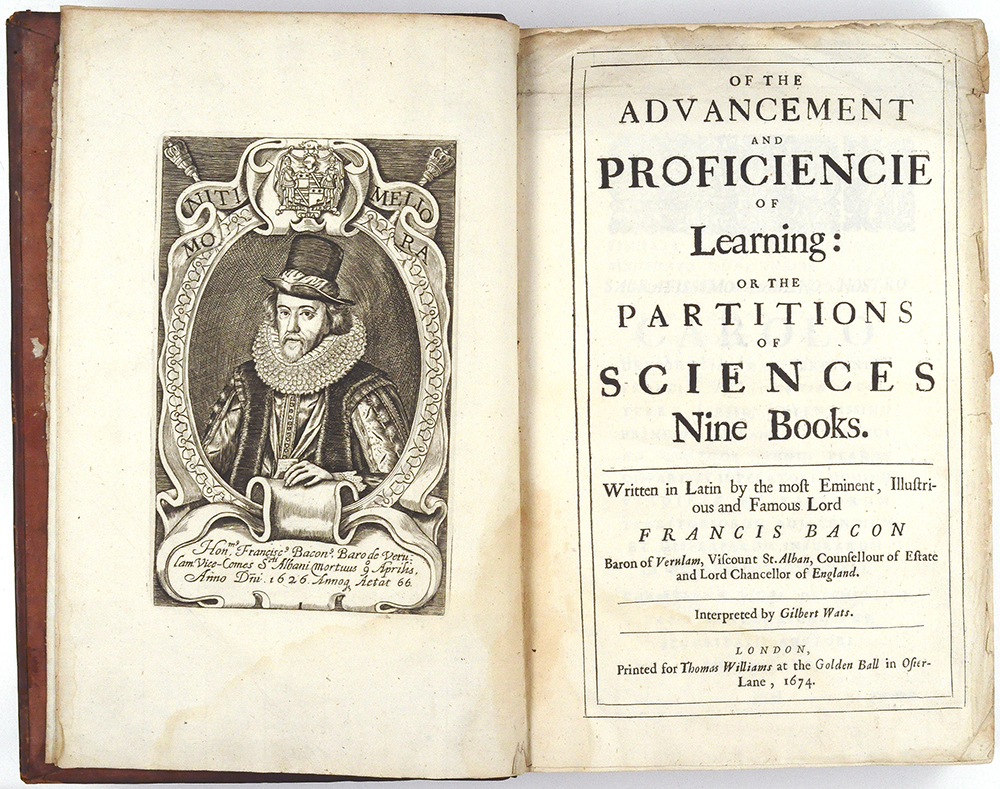 So, as I often say when I’m beginning this discussion, in about 1620 Francis Bacon invented progress. What I mean by that is that Francis Bacon, a British intellectual and statesman, published the Novum Organum, and some other works in which he argues, pretty much for the first time that not only is it possible for human beings to change the human condition but that if they do so intentionally and systematically through science—this is the birth point of the modern scientific method, which is to say collaboration among groups of people sharing knowledge to work as a team to gradually expand human knowledge—and remember, Bacon is the origin of the saying “knowledge is power,” by which he means power over Nature, not individual power, he means human beings collectively having more power when we understand more of what he calls “the secret motions of things” or what we might call how diseases work, how physics works, how electricity works, etc. By “knowledge is power” he means our power to command electricity, our power to cure diseases, these things that in 1620 he hoped science might someday achieve. And Bacon (and I’ll get to why in a moment, and also what similar concepts existed before in a moment) articulates for the first time the suggestion that if human beings collaborate as a team to observe nature, to do scientific experiments, to double check (we would say peer review) each other’s experiments, to publish this knowledge and share it, and to collectively try to expand humanity’s scientific understanding, then every generation thereafter will be a little bit more powerful in terms of how many diseases we can cure, how well we can preserve food, how well we can grow food, and thus that every generation’s experience will be a little better than the generation before.
So, as I often say when I’m beginning this discussion, in about 1620 Francis Bacon invented progress. What I mean by that is that Francis Bacon, a British intellectual and statesman, published the Novum Organum, and some other works in which he argues, pretty much for the first time that not only is it possible for human beings to change the human condition but that if they do so intentionally and systematically through science—this is the birth point of the modern scientific method, which is to say collaboration among groups of people sharing knowledge to work as a team to gradually expand human knowledge—and remember, Bacon is the origin of the saying “knowledge is power,” by which he means power over Nature, not individual power, he means human beings collectively having more power when we understand more of what he calls “the secret motions of things” or what we might call how diseases work, how physics works, how electricity works, etc. By “knowledge is power” he means our power to command electricity, our power to cure diseases, these things that in 1620 he hoped science might someday achieve. And Bacon (and I’ll get to why in a moment, and also what similar concepts existed before in a moment) articulates for the first time the suggestion that if human beings collaborate as a team to observe nature, to do scientific experiments, to double check (we would say peer review) each other’s experiments, to publish this knowledge and share it, and to collectively try to expand humanity’s scientific understanding, then every generation thereafter will be a little bit more powerful in terms of how many diseases we can cure, how well we can preserve food, how well we can grow food, and thus that every generation’s experience will be a little better than the generation before.
Bacon characterized this in Christian terms as an act of charity, that to be a scientist is the ultimate act of charity because it gives the gift of a happier life to every generation and every human that will be born after you—a very interesting root for the scientific method, which many people are used to seeing presented as an enemy of religion as opposed to as mandated by Christianity which is the way he presents it. And he suggests that by conducting research as a team and sharing it, it can intentionally come to pass that every generation’s experience is different.
Now, we would say that every generation’s experience has been different since the very beginning of humanity, that progress, while it might accelerate later on, as technological advances accelerate has been constant, and the experience of somebody in 1500 is different from somebody in 1400. And indeed, we would argue that human action, discoveries, development of states, gradual processes such as centralization of government or of finding agriculture were always causing progress. People were inventing the moldboard plough, preservation techniques, gradually breeding corn to be a slightly better and slightly better crop until it became the strange super crop that it already was before modern scientific genetic meddling, that progress was always there, than anthropogenic progress, meaning human caused progress, progress that is the result of human beings taking action.
But nobody had described this as a phenomenon before Bacon, and Bacon and his peers in fact believe that there isn’t anthropogenic progress. What kinds of progress or change do they think there is? One dominant idea in Europe at the time, and indeed for many centuries before, is that the primary changes you see experienced by humans are a plan scripted out by God, are Providence. Sometimes God, or Fate, decides that it is time for an Empire to rise, because God has a plan for it. Now it’s time for the Empire to fall, because God has a different plan for it. God decides to send a great king onto the stage of life, or God decides to send a bad king to teach people the moral lessons that tyrants teach. That is the dominant model of what people think causes change in this period, that it is an external decision made by a divinity or plan whose intentions are largely didactic, largely educational, that the purpose of sending a good king or a bad king is to send people moral examples for people’s personal moral education, to increase the likelihood of human souls doing to heaven.
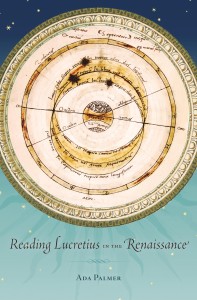
If we move earlier than that, to Antiquity, there are ideas of what I would not quite call progress or anthropogenic progress, but there are ideas of development that the Epicureans discuss for example that just as an organism might develop from a juvenile state to a mature state, so similarly planets develop over time and human civilizations develop over time. In Lucretius’s De Rerum Natura, our longest surviving classical Epicurean text, he describes the idea that Earth undergoes a process similar to the lifespan of an organism, that, for example, only in the earliest days, when Earth was young and fertile, did new species come into existence, and that only those species that were suited to their environment survived until the present day. It sounds very close to Darwin. Lucretius goes on to say that no new species are created any more because Earth is old and has undergone menopause and no longer has giant placentas growing out of the ground everywhere which is where animals came from in the first place. So before you give him too much credit for the survival of the correctly adapted idea, which he does have, and is a very sophisticated idea, there are plenty of others that we chuckle at. But he describes the idea that early on humans lived peacefully in nature, and they ate the fruits that they found and they slept under trees. You can recognize this as one of the roots of pastoral man or of a golden age. But then humans gradually discovered luxuries, gold, and treasures. And when they did that, and there were limited supplies of luxuries, then people needed to defend them, and they developed weapons, and they developed armies and laws and social structures. Then, from that, developed war, and the descent from a golden age to a silver age to an iron age. Lucretius is not the only classical Mediterranean source of this, but he is an example. So there is an idea of development, and even development where people are causing it, but it isn’t an idea of constant development, and it is an idea of negative development and not positive.
That idea exists in Antiquity, is much less prevalent in the Middle Ages, when many of those texts are not available, is rediscovered in the early 1400s, and disseminates again. So it’s one of several influences on Bacon. But what’s innovative in Bacon is his idea that there’s a strong intentionality, that the team of humans who are scientists work together intentionally to create the next generation’s experience, and indeed that if they don’t, the next generation’s experience will not be different from this generation’s experience, that unless progress is intentionally caused, progress will not occur. This is very different from our sense in which progress is constant and inescapable and positive, but also negative. We’re very used to thinking about progress giving us better technologies and better medicine, but also giving us the negative sides. As Freud puts it in his “Civilization and Its Discontents” writing just after World War 1, “it is indeed miraculous that my daughter who is across the ocean on another continent and I can speak over these new electric telephone wires, that is an amazing fruit of science but,” he says “If we didn’t have science she wouldn’t be on the other continent, she would still be here, because we wouldn’t have made the ship that carried her.” Civilization and its development creates problems in addition to creating positive innovations.
That is an idea that we’re very familiar with in the Twenty-First and Twentieth Centuries and that really develops largely in the Nineteenth Century as a result of the Eighteenth Century’s romantic interest in the idea of the pastoral and the influence of Jean-Jacques Rousseau, but also in the aftermath of the French Revolution. In 1620 Francis Bacon said “If we do science we can have progress,” and people said “Great! We can use science to evaluate everything and make more rational medicine, and more rational engineering, and more rational architecture, and more rational farming, and more rational laws, and more rational religion, and then they had an enormous war in which huge numbers of people died, and the scale of war got an order of magnitude bigger than anyone was used to, and it created a lot of anxiety and fear that possibly we don’t have as much control over this progress thing as we thought. So it’s then in the Nineteenth Century that you get the image of being a cog in the machine being trapped within progress, progress being inescapable.
(If you were skipping down because you’ve read On Progress and Historical Change recently, this is the right spot to start reading closely again)
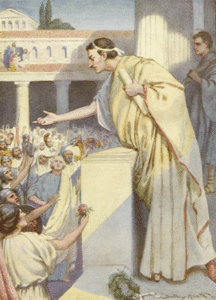
Within this review of concepts of progress the question then comes: who has power over determining what happens? Is the answer “No one”? That progress happens in so many different arenas and so many different directions that pretty much it’s just chaos? Is the answer “Governments or rulers”? that a great king or a great virtuous leader is going to be what determines whether our country prospers. Or do we believe that certain individuals exercise influence?
And here is where I’m going to zoom in to the Renaissance, which is to say, to my own period, which is where we see ideas of who has power over progress, and especially who has power over mindsets and the clash between the assumptions we often make about that vs the historical evidence that we have.
(The longer treatment of this discussion appears in “Black Death, COVID, and Why We Keep Telling the Myth of a Renaissance Golden Age and Bad Middle Ages”)
So, Italian Renaissance, or Renaissance in general, we’re used to thinking of this as a moment of great change when things accelerate, when the Middle Ages, which we tend to think of as stagnant, and perhaps backwards and without dynamism and without a lot of progress or change—all of these things are false, but they are the assumption most people have—suddenly shifts and we get a lot more. We get faster innovations, and faster development of technologies, and a change in mindset. Now all of these things are true, we do get an acceleration, but it’s a wedge, it’s not a flat line and then a spike.
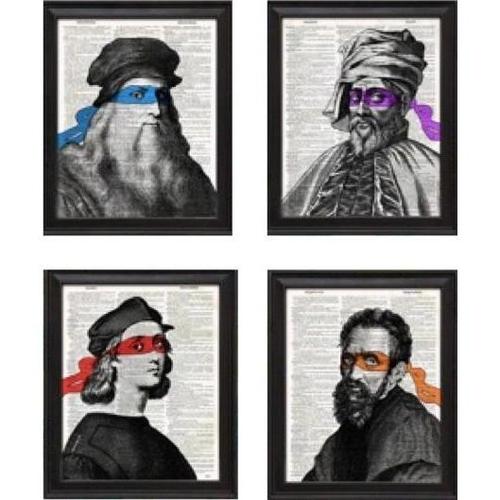
The core figures that we know from the Renaissance, and the way you often know about the Renaissance when you’re not a specialist, are famous geniuses. Leonardo da Vinci is the best known Renaissance figure, followed by Machiavelli and Michelangelo and Raphael, and we think of this as an age of genius, an age when excellent brilliant people created magnificent art and magnificent architecture, and there is a focus on those geniuses as being the core of change, on those geniuses as being fundamentally what makes the progress happen. There are in fact a lot of cultural reasons, and this is not the moment for me to give you my list of what the causes of the Renaissance are, though there is a blog post about that if you’d like to look for it in my discussion of COVID-19 and why we have the Medieval/Renaissance distinction and the problems with it, but the key data point that I want to start with here is when I’m at a dinner party and I meet somebody’s spouse and they ask me what I study and I say I study the Renaissance, and they ask what I study in the Renaissance, and say well, I study Renaissance radical thought, I study censorship and the Inquisition, and I study atheism, and I study heretics and heresy trials and the dissemination of radical thought. It’s very common for there to be a pause, and an excited face, and then the question “Oh! So isn’t it true that x famous Renaissance genius was an atheist?” It’s incredible how often that’s the question. And the reason for that is a narrative that many of us are familiar with that the Renaissance is an era of secularization or secular thought, that it’s the moment when the shackles of religiosity are being challenged, when Humanism as a centering on humans comes in (that’s not actually what Humanism was in the Renaissance, but that’s what it is now and that’s what people think it was) and that the core of the difference between the Middle Ages and the Renaissance was the breaking free of faith and the beginning of an age of Reason.
That is an expectation largely based on ideas about the Renaissance that were published largely by German and British historians in the Nineteenth Century. This is very, very different from the way the Renaissance presents itself, and also very different from what we find when we look at things. But the important detail here is everyone’s excitement to have me confirm at the dinner party that yes, Leonardo was an atheist, or yes Machiavelli was an atheist, or yes, Michelangelo was an atheist. Why is that? Mainly it’s because the dominant narrative about the Renaissance is that there were a bunch of geniuses who had a pseudo-modern mindset. Meaning more secular, not necessarily atheistic, some people are simply excited for it to be modern, scientific, etc., and that those geniuses saw lying before them the possibility of a more secular more rational age that would be better, it would be modern, it would be free of all the limitations that dragged the Renaissance down. And that these geniuses seeing that in their future, seeing it, then worked to make it so. I see this narrative in a lot of places. I see it in academic articles or books that assume that it’s true. But if I zoom out further, you’ll see it in op eds, when people are writing an op ed about the Black Death and COVID and they’ve researched this for 48 hours, that’ll be what they say, or it’ll be in the intro of an economics book.
(For more on this see “Why We Keep Asking ‘Was Machiavelli an Atheist”, or for the footnoteful version my chapter “The Persecution of Renaissance Lucretius Readers Revisited” in the frustratingly expensive but totally interlibrary-loan-able collection Philip Hardie, Valentina Prosperi, and Diego Zucca eds., Lucretius Poet and Philosopher: Background and Fortunes of ‘De Rerum Natura’, De Gruyter, 2020)
If you zoom out even farther, you get it in the Cosmos TV series, the new one with Neil de Grasse Tyson which chose to begin its first episode with this glimpse of the life of Giordano Bruno (analyzed in the article above), it presents Bruno as a kind of martyr for science, and whom it describes as a very modern person, that he saw that there could be this other world of reason and he tried to buck against the system and fight against it, and the Inquisitional Thought Police, and he uses the phrase “Thought Police” which is a very important detail, chased him down and suppressed him because they didn’t want these ideas to be spread. But he knew that one day it would, and other people who were like-minded with him worked really hard, and their underground efforts eventually made it so.
And if you zoom out even further again, you get it in pop culture stuff. The plot of the extremely mediocre old David Warner fantasy movie Quest of the Delta Knights. The plot of that is that there has been an ancient scientific and secularizing rationalist secret society founded by Archimedes that has since Antiquity been keeping the light of reason secretly alive through the Middle Ages, and eventually will break through and reveal all the lost documents and science from Atlantis and usher in the modern age, and the hero helps make that happen, to defeat the Middle Ages and make the modern age happen because this cabal of people who fundamentally think like modern people has existed since Antiquity and preserved the light and now it’s going to triumph. It’s also the plot of the Assassin’s Creed video games, that there is a secret society of rationalist people who fight the pope—literally, by punching him!—and they advance science, and Machiavelli is in charge of it.
And these are hilarious and fun but they are echoes of the idea that the people who are in charge of intellectual change, the people responsible for getting us from Medieval to Enlightenment thought like us, that they thought ahead of their time, that they saw the future potential, that they had a plan and they secretly implemented it—in other words that the people who have power to determine what the future is, is a few particular geniuses, who in their brilliance see what the future is going to be. That is not true. First of all, none of these people predicted any of what the future is like, and none of them in fact tried to undermine the church—I’m talking about Leonardo, Machiavelli, etc.—and none of them articulated things that would read like modern when you really sit down and read them. They are presented as proto-moderns by historians of the Nineteenth Century who want to claim a descent from them, because we respect these names, they are exciting, and so if you can claim “I am carrying on in the tradition of X!” you can make your own regime seem powerful. This is a tool that the rising nationalist movements of the Nineteenth Century, in Germany, in Britain, in France, in Italy, used to compete with each other by trying to claim “Oxford is a truer descendant of the ideas of XYZ than the universities in Italy, look at how we’re carrying on the rationalist secret underground messages that were in Machiavelli and were in Leonardo” which are not there.
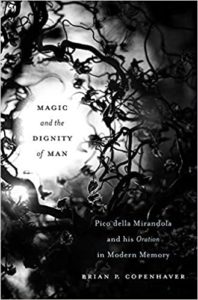
There are radical messages in these things. Here is the key. Renaissance radicals were really radical! Machiavelli was really radical, Leonardo was really radical. People like Giovanni Pico della Mirandola, who is a little less famous but very frequently pointed at as the Renaissance genius, mastered fourteen languages by the time he was a teenager, he was brilliant, he was rich, everyone loved him, he wrote a giant nine hundred thesis synthesis of all world religions, which he proposed to defend in front of the pope. And he has this famous text known by its Nineteenth Century title The Oration on the Dignity of Man. I’ve got a 682 page book on my shelf by Brian Copenhaver about how The Oration on the Dignity of Man is not an oration and it’s not about the dignity of Man—that is a Nineteenth Century reading of it which still colors forward. It was actually a manual on how to turn yourself into an angel, by hybridizing Islam and Zoroastrianism with Kabala, channeling those through Plato and making a new version of Christianity which would synthesize all world religions. And by the way, Pico and his friends believed that if they just explained this to the Ottoman Muslims they would immediately understand that Islam and Christianity were exactly the same and then there would be world peace. That was the plan, that everyone would real Plato and then they’d realize that all religions were the same and then there would be world peace. These guys are really radical! Their versions of Christianity have reincarnation and soul projection and did you know that if you study enough of the Chaldean Oracles you can project your soul out of your body and use it to spy on Padua? This is what Latin class and Greek class should be for. Renaissance radicals were incredibly radical. But their radicalism did not resemble our modern mindsets. Their radicalisms were all over the place. The more I study them the more I love them, there are dozens of worldviews in there more alien than any alien in Star Trek ever made up, they’re gorgeous, but they don’t resemble the way we thought in the Twentieth Century, or in the Nineteenth Century, or now. Those people in the Renaissance didn’t see a future and then intentionally make it. Those people in the Renaissance had radical ideas, proposed them, debated them, mixed stuff all over, had different weird inconsistent influences, and the cauldron of all of it, of the people you’ve heard of and the many dozens of people you haven’t and the many hundreds of people who read them and debated them and the many thousands of people who read those books in schoolrooms and disseminate those weird ideas, those are what actually makes the change happen.

Now I’m going to zoom in to my most micro example. So. The least interesting set of texts that I can think of, and I’ve been trying to look into this, were editors’ prefaces at the beginnings of copies of Epictetus (aka. my article “Humanist Lives of Classical Philosophers and the Idea of Renaissance Secularization” in Renaissance Quarterly Vol. 70, No. 3 (2017), pp. 935-976). Epictetus’s manual is a set of Ancient Roman moral maxims about how to be a virtuous person, and it’s short, so people liked to teach it at school, and a lot of it sort of lines up with Christian virtues, so it’s very compatible with teaching in a Christian context, so it was a super popular textbook. It was a super popular schoolbook, the equivalent of making kids read Dickens or making kids read a Shakespeare play as part of High School English class. So there are many, many dozens of editions printed pretty much as soon as printing is invented—from the 1490s, and all the way through the 1500s, and the 1600s and the 1700s there are editions of Epictetus, and every one has a preface from the editor explaining why Epictetus is a great text to read, and usually trying to seem more awesome than the previous edition of Epictetus, so that you’ll buy that edition for school instead of the other edition, or so that the teacher will recommend that edition instead of the other edition. Publishing, as we all know, is very competitive, and you’re always trying to have the blurb that makes it attractive — if someone walks into the bookstore and there are four books with dragons on the cover, something is going to make the difference to which one they pick up, it might be the copy on the back, this is the equivalent of that.
So when you look at the prefaces, which are being written by scholars who aren’t very important and aren’t very famous and nobody has heard of or cares about any more, but they have a job and the printing house has got them to edit this thing because this is their job. Those guys who are doing that, that you’ve never heard of, are reading the guys you have heard of. They’re reading Pico, or they’re reading people who are talking about Pico. They’re reading all these dozens of bizarre strange ideas that are going on. Most of them definitely don’t agree with it, or if they agree with it, they only agree with one thing, because there are dozens of different ones, but there’s the milieu. And they notice the arguments that are big and all over the place, and one of them is, Renaissance people were very interested in the fact that the sayings of Epictetus were remarkably similar to some of the ethical teachings of Christianity, especially in the letters of St. Paul. In fact in the Middle Ages there was a rumor that Seneca and St. Paul knew each other and wrote letters and Seneca was associated with Epictetus, and Epictetus was supposed to have secretly converted. None of this is true, and in the Renaissance they had pretty much figured out that it wasn’t true. But it was very interesting to note that Epictetus’s moral maxims were similar to St. Paul’s. So if you were writing a preface to Epictetus, you would write a preface that said “He was a pagan, but he was almost as good as St. Paul!” And then ten years later when there was a new edition and someone wanted to make that edition sound better, and I have all of these editions in Latin and I have the article version of this where you can read the translations of all of these, they’ll say they want to make a stronger claim, so they’ll say “Epictetus’s moral maxims are barely less good than St. Paul’s.” And the next one will say “Epictetus’s moral maxims are just as good as St. Paul’s!” And the next one will say “Epictetus’s moral maxims, even though he was a pagan, were even better than St. Paul’s, because they are simpler and clearer and more effective at teaching ethics.” And by the time you get to the 1700s there’s an edition, which you can tell is copied from these earlier editions, they even plagiarize sentences from each other’s prefaces, it’s direct evolution, that says “Epictetus by the light of Reason alone and without the necessity of scripture or revelation arrived at better ethics than St. Paul.” And that is the kind of book that Voltaire owns when he is a kid.

So, who is transmitting this radical idea? Gradually of the idea that Scripture and Christian revelation are necessary for ethics? Who is transmitting that? Is it the big famous people? No. Because there are thousands upon thousands more copies of these classroom Epictetus volumes than there were of Machiavelli in this period. Machiavelli is banned in most places. You can’t even get it without hunting hard, you can only get digests of it, and it’s not printed nearly as often. People have it but it’s extra work, like how there are people around who use Linux instead of Windows or Mac but it’s extra work and you have to work at it and not a lot of people do it. But Epictetus? He’s as ubiquitous and default-accessable as Windows. So for every one person who’s actually reading Machiavelli in that era, a hundred people at least are reading this Epictetus preface that says you don’t need Christian Scripture to arrive at a good system of ethics. Who spread the radical idea? Thousands of people you haven’t heard of, dozens of editors who wrote these editions, most of them not intending to make anything radical happen but just intending to sell a copy of a book, in fact most of them genuinely believing that Epictetus was an author who would advance Christianity and make people believe in it more, they, nonetheless, unknowingly and unintentionally transmitted the radical ideas that turned into Deism, and that turned into that secular turn that we associate with the Enlightenment, and that we falsely associate with the Renaissance. So you see it is the Renaissance seeds that lead to it, but it some genius list of special radical people who thought the way we do that made it happen, it’s thousands of people who had dozens of different worldviews, some very orthodox, others very radical in ways that don’t resemble us, but all these ideas discussed and wrote and published and debated, and those debates influence textbooks written by nobodies who get left out of the kinds of history that focus on big names, but it’s those small names that have so much deeper broader reach than the treatises of the people who are the most famous today, largely because our canon of who’s famous was cemented by nineteenth-century people who were looking into the past and cherry-picking people to celebrate whose ideas they thought resembled their own, in order to legitimize themselves (and prop up their belief that they had a right and duty to dominate the world and ‘elevate’ ‘lesser’ cultures with their ‘right’ ideas and ‘right’ path of progress).
So, what this example and other similar studies shows us is that we overestimate how much intentionality we think individual special people have. So every time I see a cover of a tech magazine that has a new tech start-up billionaire that says “Will this man be the first man to live for two hundred years?” or “die on Mars?” or whatever, and in the article it claims “This person has a vision for the future and knows what the future will be like, and it’s this, and he’s working on building it!” (or occasionally “she”, but usually “he”) and “the future is in the hands of these geniuses.” That idea, that the future is in the hands of people whose mindsets somehow already match the future, that makes us feel powerless, makes us feel like our job is to sit back and wait for those geniuses who can already see the future to bring it about the way we imagine Machiavelli did. I remember when I first realized this it was watching the first Iron Man movie, where Tony Stark, after inventing pollution-free green energy, and saving stuff with the iron man suit gives this press conference statement “I have successfully privatized world peace,” and that is the line that gets pushed, that the solution to our strife, or climate change, is waiting for the genius to appear like a superhero with the special power to reshape the world, while everyone else sits back and gets rescued. Why do we get drawn into the rhetoric that claims this? Because our textbooks tell us that’s how we got to where we are now, that the present came about because historical figures who were geniuses and could foresee the wonderful, liberated, rational modern era that was coming then sat down and intentionally tried to make that era come. Well, they didn’t. This world is nothing like anything that people in the Renaissance tried to make. They tried to change what their world was like, but the things they were aiming for were not what actually resulted. It was the mixing together of all sorts of different and incompatible ideas, radical and orthodox, mixing in the contributions and debates of enormous numbers of forgotten, un-famous people, that was key to what changed mindsets overtime. Sometimes particular key works were extra prominent in that discourse, be it Hobbes or Epictetus, but that doesn’t mean that the effect of Hobbes publishing Leviathan was to engineer a future Hobbes envisioned, it was to stimulate thousands of people to have new conversations, many of them hostile, which in turn generated new ideas.
So, who has the power to shape the future? The answer the Renaissance shows us is not genius, not “a few people who have the right vision” it’s lots and lots of people, but a lot of the time the result of their efforts isn’t going to be what they meant. So for example, the first Renaissance scholars who tried to get people to read Epictetus, Petrarch and such, their idea was that fractious and war-torn Renaissance Italy—which Shakespeare depicts somewhat accurately in Romeo and Juliet, where rival noble houses are having feuds and goons and killing each other in the streets, and people are very willing to cause a civil war to advance their family) Petrarch and other Renaissance intellectuals thought that this was a problem and that the best way to address it was to improve the moral education of these ruling families. The reason that they wanted to build libraries and advance the new reading of the classics and so on was that they thought if their leaders had better ethics they would stop having feuds, civil wars, that if they could get the leaders of their society to read the books that young Cicero, or young Seneca, read when they were growing up, that you could then rear a new generation of leaders who would put the good of the country before the good of their family, who would like the Roman Brutus (not the one who killed Caesar, the earlier one) be willing to execute his own sons if they were committing treason, in contrast to the Renaissance norm which was to get your goons to assault the jail and liberate your son if he’s been arrested. These Renaissance people wanted people to read Epictetus, and similar works, to make them more Christian, and more ethical. We have reams and reams of this writing where they say it “We think that reading these Roman texts will make you a better Christian.” They say it over and over and over. And yet the inadvertent effect of that was disseminating a lot of radical ancient thought, which made a whole lot of different radical stuff happen, which caused changes within Christianity, which contributed to the Reformation as well as deism and atheism, which none of these early Renaissance figures would ever have wanted to have had happen, but which was the real effect of their project.
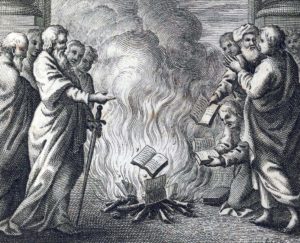
Important sideline because people always ask: so, lots of Renaissance figures who spread radical ideas but also claimed to be good Christians get pointed to by modern people who want to say “They’re secretly an atheist, they’re just self-censoring!” but the thing is that tons of these figures publicly endorse ideas that are way more dangerous, way higher on the Inquisition’s list. You don’t meticulously self-censor that you’re secretly an atheist or secularizer and then publish a demon-summoning manual with your name on it, or a book that endorses Martin Luther or espouses your belief in reincarnation. Someone who recklessly expresses ideas much more dangerous than atheism would not bother to be so careful with their atheism that we can’t find traces even in their private writings. Atheism isn’t as risky in the period as the other stuff which these people are espousing. I’ve got an article in which I go through every single person we know in the Renaissance who read Lucretius and got in trouble with the Inquisition and what they got in trouble for and it was never Lucretius. One of them goes to the stake for sola fide, Luther’s belief that faith alone, rather than faith and good works is how you get to Heaven. No atheist would choose to go to the stake for sola fide, they would say “I don’t care” and walk away. Giordano Bruno, pointed to in the Cosmos TV series which claims that he went to the stake for believing in atoms and the existence of alternate worlds, when you actually read the trial record, he doesn’t espouse that stuff in the trial, nor do they ask him about it. The only time Lucretius comes up in his entire trial is a time in which Bruno brings him up to call him stupid and disagree with him. They’re worried about Bruno’s use of Aristotle, and they’re worried about Bruno’s ideas about the division of the soul and the way the soul connects to the body and stuff that has nothing to do with atheism, atomism, materialism, or anything else that we consider modern. That’s not what gets Bruno in trouble. So we think of it as being atheism, but nobody would bother to self-censor atheism and then avow this other stuff that they all know is more dangerous. Most of them avow incredibly dangerous stuff and get away with it because they’re friends with a Duke, or a king, and this is a period in which you can say almost anything if you have the protection of royalty, and that’s how we get lots and lots and lots of radical works, because people are under their protection. So the claim that there was a radical underground of secret atheists meticulously hiding their traces so carefully that we can barely detect them even in their own works while they were running around declaring their support for much more dangerous ideas, and getting in big trouble sometimes for doing so, just doesn’t make any sense.
 Were there some atheists in the period? Totally! See fabulous treatments by Matytsin, Hunter/Wootton, Kors, Sheppard, Popkin, D. C. Allen) and I think I’ve personally confirmed about three definite ones, but the three I’ve looked at didn’t hide it that much, we know about it because all their friends knew and commented on it, it wasn’t that secret. And—the more important part—it wasn’t those three who had monopolized the power and influence and created modernity through their genius vision, they were fairly minor people—one was an illiterate fishmonger, an awesome one, but not a person in power in any traditional. The key is that these awesome atheist radicals were only one kind of radical amid dozens and dozens of other equally awesome Renaissance radicalisms that don’t resemble modernity at all, but it all mixed and churned among the many more orthodox ideas, and percolated into things like Epictetus prefaces, and that’s what caused the change, not the few people who most resemble later things, the mix of everyone.
Were there some atheists in the period? Totally! See fabulous treatments by Matytsin, Hunter/Wootton, Kors, Sheppard, Popkin, D. C. Allen) and I think I’ve personally confirmed about three definite ones, but the three I’ve looked at didn’t hide it that much, we know about it because all their friends knew and commented on it, it wasn’t that secret. And—the more important part—it wasn’t those three who had monopolized the power and influence and created modernity through their genius vision, they were fairly minor people—one was an illiterate fishmonger, an awesome one, but not a person in power in any traditional. The key is that these awesome atheist radicals were only one kind of radical amid dozens and dozens of other equally awesome Renaissance radicalisms that don’t resemble modernity at all, but it all mixed and churned among the many more orthodox ideas, and percolated into things like Epictetus prefaces, and that’s what caused the change, not the few people who most resemble later things, the mix of everyone.
To briefly quote my polished version of talking about this (from my chapter in the Hardie/Prosperi/Zucca volume) “We do these courageous freethinkers a disservice if we dismiss the diverse and original ideas expressed in their Christian Epicurean and anti-Epicurean works as mere veils over a comfortably proto-modern rationalism. Rather than taking a step forward on a triumphant path leading inevitably toward modernity, Lucretius’s radical Renaissance readers took many steps in many directions, breaking new and fruitful ground… As we seek the agents who forged modernity, we need to stop looking for people who look like heroes, for people who look like villains, and above all for people who look like us. The characteristic ideas and values of modernity were not birthed by people we would have agreed with. They were birthed by a vibrant and diverse range of pre-modern minds alien to our own, advancing plural projects which all moved and shaped each other, plural particles in constant motion all with dynamism and momentum, not passive and inert until struck by a single modernizing genius who contained the swerve.”
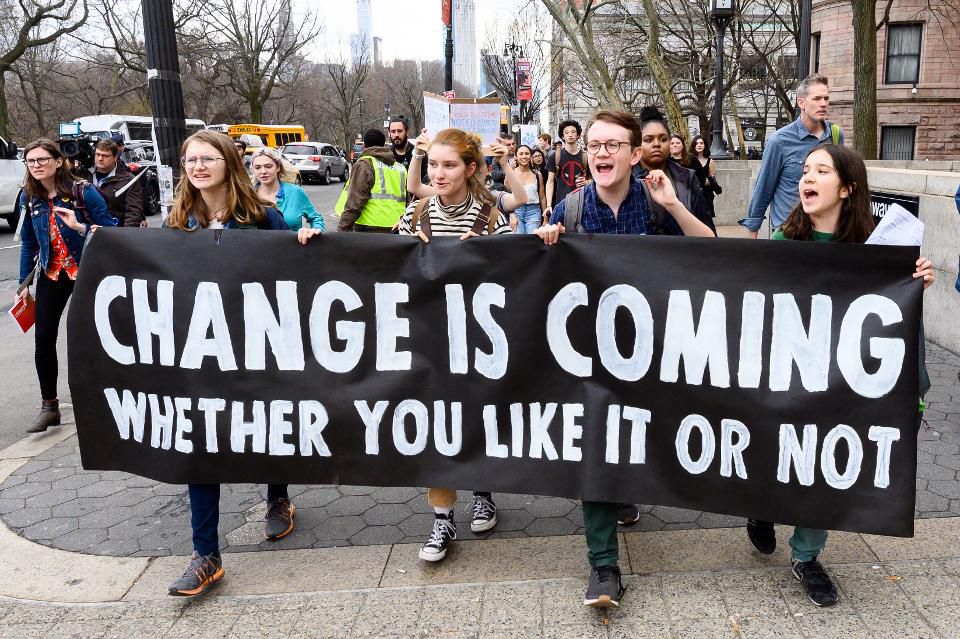
So, zooming back to the present, a lot of people have a sense of powerlessness, as if we’re supposed to wait for the geniuses who clearly see the future to make it happen, and we don’t resemble those geniuses because, as history presents them, the genius figures who shaped modernity always had a clear plan, they never have vague self-doubt, or maybe they have like one dramatic turning point doubt crisis and then come out of it as their mature perfect genius selves, they’re perfect, like the protagonists of novels, and they never do laundry, and they never run out of socks, or worry about paying rent, and if the historical record shows them worrying about money then they’re somehow morally compromised and not true intellectuals, which isn’t true! I have letters where Machiavelli writes home complaining that his salary hasn’t arrived and he’s run out of socks, and has holes in his shirt and he’s worried about looking scruffy in front of the pope, and then there’s a letter back “We gave your salary to Michelangelo and we hope he can bring it to you,” and then an angry letter “Michelangelo didn’t bring me my salary!” And “Sorry, Michelangelo had trouble on the road and turned around and had to come back, there were bandits.” Real famous people in history had lots of setbacks and problems and laundry like anyone else. They resemble us more than we think. (This is why I teach Machiavelli’s letters so much). And such people also had less power over change than we ascribe to them.
Real changes in what a society thinks, in what a culture values, come from thousands of people debating something. It comes from that classroom where people are talking about Epictetus. And the modern equivalent of that classroom where people are talking about Epictetus then is this talk, this convention, blogs and social media spaces, even Twitter, anywhere where people are talking about books and events and thoughts. What’s going to shape the future? It’s people online debating about which actions are ethical or unethical in Game of Thrones. That’s exactly like these classroom discussions of Epictetus, which turn into introductions to Epictetus, which turn into the education of Voltaire, which turn into the pen mightier than all swords. Random conversation is where it happens, not one genius, thousands of people exchanging ideas. And it doesn’t result in the world those people envision. Renaissance people did try to intentionally re-engineer the world, and they did sort-of have a shared plan, they wanted to make a world that was more ethical, that had a lot of moral education of its elites in those values which both Ancient Rome and Christianity shared, and this would result in an era of peace.
It didn’t.

The actual social engineering project that the Renaissance undertook, the world that they wanted to make, is not the world that resulted. The world that resulted was more different, more strange, and more awesome than anything they ever envisioned. Because you know what came out of the Renaissance? Francis Bacon inventing progress and the scientific method and the beginnings of the Enlightenment, which are fruits far more innovative, far more exciting, and far more powerful than anything any Renaissance genius sat down to do. So when you ask yourself “The work I’m doing to try to make a better world, is it helping? Is it going to make the world I envision?” The answer is: it’s not going to make the world you envision, but it is helping, and it’s going to combine with the efforts of thousands of other people that happen in every conversation, in every convention, every workplace, every school, and media post where you’re debating or disseminating an idea or even sharing a concept, it all contributes. But the world that we end up making is not going to be he we envision, it’s going to be—like Francis Bacon’s world—stranger, more different, and more awesome, than those who created it could imagine, just as the Enlightenment was relative to the Renaissance.
So I hope what you take away from this is some point of encouragement and hope, and the understanding that we will not make exactly the world we imagine, but the world we’re going to make is going to be an amazing world, and that we are all contributing to making it, not just elite geniuses, but every one of us, every day.


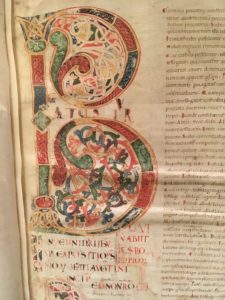
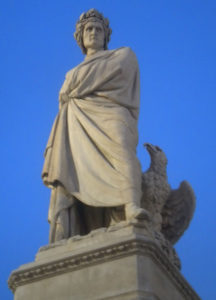 Teaching Machiavelli through his letters is a separate thing from being an historian accessing Machiavelli through his letters. One of the reasons that I love teaching Machiavelli through his letters is that you get a very different view of the person from letters. You get unimportant details. You get the things that the person cared about that week, as opposed to the things that the person wanted to be discussed by many people in the context of that person’s name for a long time. You do get the serious political thought, but you get it mixed with “Where is my salary?” “Hello my friend,” “Here’s the party I was at,” “I have a cold,” all of these very human elements that don’t come to us when we just read a thesis.
Teaching Machiavelli through his letters is a separate thing from being an historian accessing Machiavelli through his letters. One of the reasons that I love teaching Machiavelli through his letters is that you get a very different view of the person from letters. You get unimportant details. You get the things that the person cared about that week, as opposed to the things that the person wanted to be discussed by many people in the context of that person’s name for a long time. You do get the serious political thought, but you get it mixed with “Where is my salary?” “Hello my friend,” “Here’s the party I was at,” “I have a cold,” all of these very human elements that don’t come to us when we just read a thesis.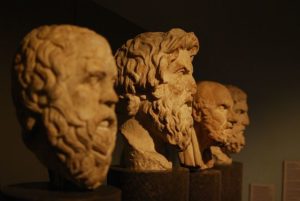 When I’m trying to unpack not only Machiavelli but history in general to my students, it’s very easy for the history to seem like a sequence of marble busts on pedestals who handed us great books. It’s much harder to get at the fact that those people are also people who are like us: people who messed up, people who ran out of money, people who had anxieties, people who failed in things that they undertook. People who had friends, people who were nervous without their friends, and lonely. And that isn’t a version of history that we get shown very often. We get shown heroes, we get shown villains, and we get shown geniuses, as if there isn’t a person present as well. Machiavelli is a very valuable example, because we have such a great corpus of letters, but he’s also such a name. If you want to make a shortlist of people who are a marble bust on a pedestal in the way that they’re presented as we talk about the history of thought, Plato, Aristotle, Socrates, Cicero, Machiavelli, are major major figures in that way. So the letters humanize them and make them real.
When I’m trying to unpack not only Machiavelli but history in general to my students, it’s very easy for the history to seem like a sequence of marble busts on pedestals who handed us great books. It’s much harder to get at the fact that those people are also people who are like us: people who messed up, people who ran out of money, people who had anxieties, people who failed in things that they undertook. People who had friends, people who were nervous without their friends, and lonely. And that isn’t a version of history that we get shown very often. We get shown heroes, we get shown villains, and we get shown geniuses, as if there isn’t a person present as well. Machiavelli is a very valuable example, because we have such a great corpus of letters, but he’s also such a name. If you want to make a shortlist of people who are a marble bust on a pedestal in the way that they’re presented as we talk about the history of thought, Plato, Aristotle, Socrates, Cicero, Machiavelli, are major major figures in that way. So the letters humanize them and make them real.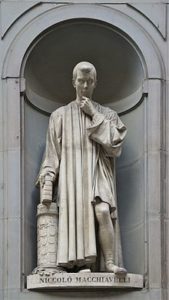 It was very interesting to me to see that battle between thinking of the figure as human, in which the question “Did he mess up?” is a valid question, as opposed to thinking of the person as someone who could never mess up. And a lot of the ways we approach historical figures, whether it’s Machiavelli, or Aristotle, or anyone, involve the idea that all of their works are fully intended, that they’re somehow in an a-temporal vacuum, that we should look at them all in sequence, that no one is ever going to change his mind about a thing unless the person themselves made changing their mind about a thing be a big deal. We create this idea of these geniuses where everything they wrote even from early on is exactly what they meant, which then all gets incorporated into material.
It was very interesting to me to see that battle between thinking of the figure as human, in which the question “Did he mess up?” is a valid question, as opposed to thinking of the person as someone who could never mess up. And a lot of the ways we approach historical figures, whether it’s Machiavelli, or Aristotle, or anyone, involve the idea that all of their works are fully intended, that they’re somehow in an a-temporal vacuum, that we should look at them all in sequence, that no one is ever going to change his mind about a thing unless the person themselves made changing their mind about a thing be a big deal. We create this idea of these geniuses where everything they wrote even from early on is exactly what they meant, which then all gets incorporated into material.